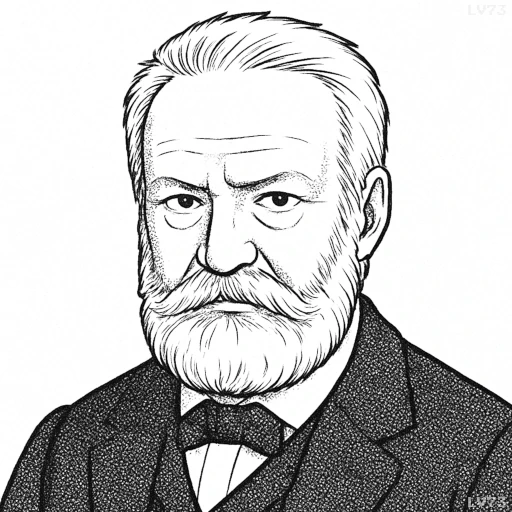“The last resort of kings, the cannonball. The last resort of the people, the paving stone.”

- February 26, 1802 – May 22, 1885
- Born in France
- Author, poet, playwright
table of contents
Quote
“The last resort of kings, the cannonball. The last resort of the people, the paving stone.”
Explanation
In this quote, Victor Hugo contrasts the methods of power used by the ruling class (represented by the cannonball) with the methods of the people (symbolized by the paving stone). The cannonball is a weapon of violence and force, used by the rulers to maintain control over the masses through intimidation or suppression. In contrast, the paving stone represents the more spontaneous, grassroots actions of the people—often violent, but coming from a place of desperation or resistance. The paving stone, as a symbol of revolt, is a weapon of the oppressed, used when the people are pushed to the brink and have no other means of voicing their dissent.
Hugo’s quote reflects his deep sympathy for the common people and his critique of the power structures that often oppress them. By presenting the cannonball as the weapon of kings and the paving stone as the weapon of the people, Hugo underscores the tension between the privileged class and the masses, where rulers maintain their authority through force, while the people are left to use whatever means are available to them—often leading to rebellion or revolution. This duality points to the inequality and injustice of a society where the powerful have access to military might, while the people are forced to resort to more rudimentary and often violent forms of resistance.
In modern terms, Hugo’s words still resonate in discussions about social justice and the dynamics of power. The cannonball and the paving stone serve as metaphors for how those in positions of authority often use overwhelming force to control the populace, while the oppressed may have to resort to rebellion or civil disobedience when peaceful avenues are closed. This quote reminds us of the tension between authority and the governed, and the sometimes desperate measures that arise when the system fails to address the needs of the people.
Would you like to share your impressions or related stories about this quote in the comments section?



